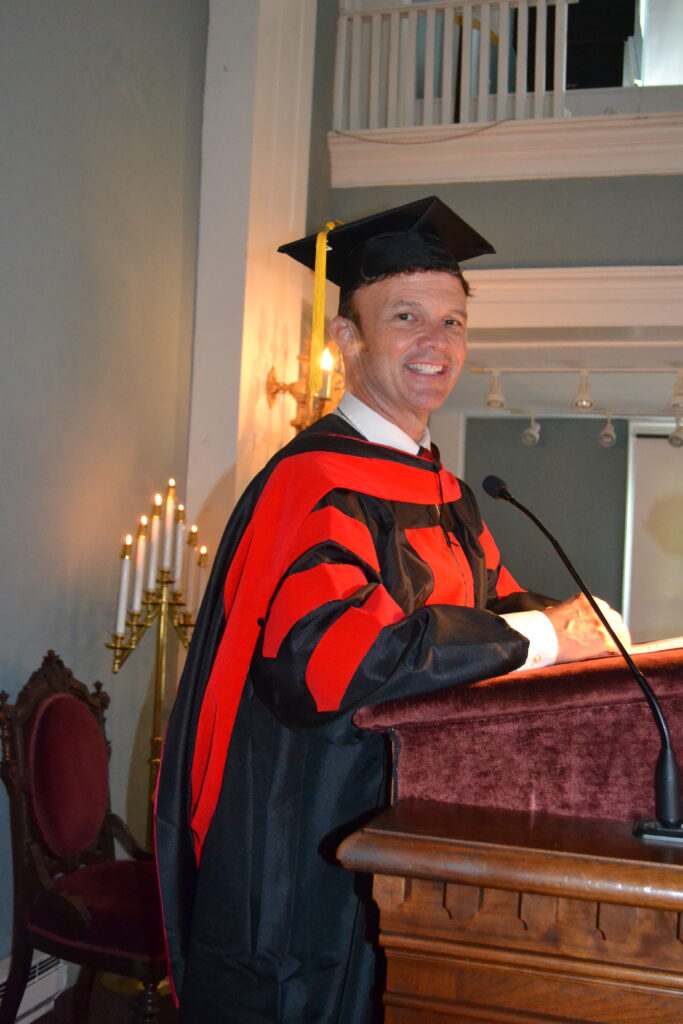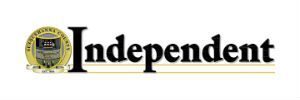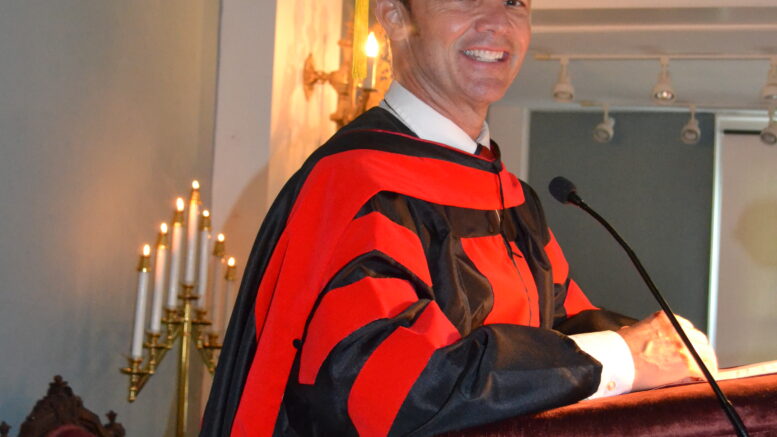
Rev. Dr. William Hagenbuch in his graduation robes pictured in the sanctuary of his Harford Church. PHOTO COURTESY WILLIAM HAGENBUCH
When Harford First Congregational -UCC pastor William Hagenbuch set out to work on his Doctorate of Ministry, he had no idea the country would be seized by a pandemic as he virtually presented his final thesis this past spring.
His thesis topic proved timely – Online Worship.
In his doctoral research, Hagenbuch explored how modern technology can help reach people who are not part of a congregation.
“If people are not drawn to go to church, the best option had been a camera stationed in the back of a sanctuary,” he said. “Jesus always attracted the marginalize. We are called to do the same.”
Hagenbuch said he believes theology should speak to technology and go further. “We have the ability to reach anybody who has internet capabilities.”
Moving with technology, and making Christianity accessible, “removes the barrier of the threshold for people who were burned by religion and not going back to church.”
The professor who led the writing portion of his degree did not embrace Hagenbuch’s unconventional thesis idea. Typically, those pursuing a doctorate of ministry focus more on topics such as youth involvement, church growth, or death and dying.
Hagenbuch’s journey to achieving advance theology degrees began with a Master of Divinity in Boston.
And his decision to take the next step came unexpectedly during a visit to New York City. Hagenbuch was there, selling his book “Jesus Cloned.”
Preparing to board a bus at the Port Authority Terminal for the trip home to Harford, he noticed an advertisement on his phone for a Doctor of Ministry program. “I heard the word, ‘Go,’” he said.
He applied late and was accepted early to the Lancaster Theological Seminary. “I wasn’t looking for career advancement. This truly was what God led me to do,” he said. “Some in the congregation wondered where I would go from here when I started.”
“I felt the presence of God in conversations unfolding on topics that matter today,” Hagenbuch said of the times he spent at the school
“I found myself to be incredibly present.”
He continued, “In ways it is a practical degree; the program is designed for me produce Godly work to enhance the communities in which we serve, through a God that’s always present.”
In his position with his church in Harford, Hagenbuch had been utilizing technology for some time – reaching out to his congregation and beyond with weekly features – such as a Wednesday meditation and sermon prep on Fridays – using Facebook as a social media platform to reach people.
Hagenuch said someone in Costa Rica found him and now follows the page.
“The message needs to come to people – and that is happening with this virus,” he said. He says people around him are now more aware of the importance of the project.
Hagenbuch hopes to use his platform – and his degree – in a positive way. “We can use our voices to recognize potential and power within affirmation,” he said.


Be the first to comment on "Theology meets technology"